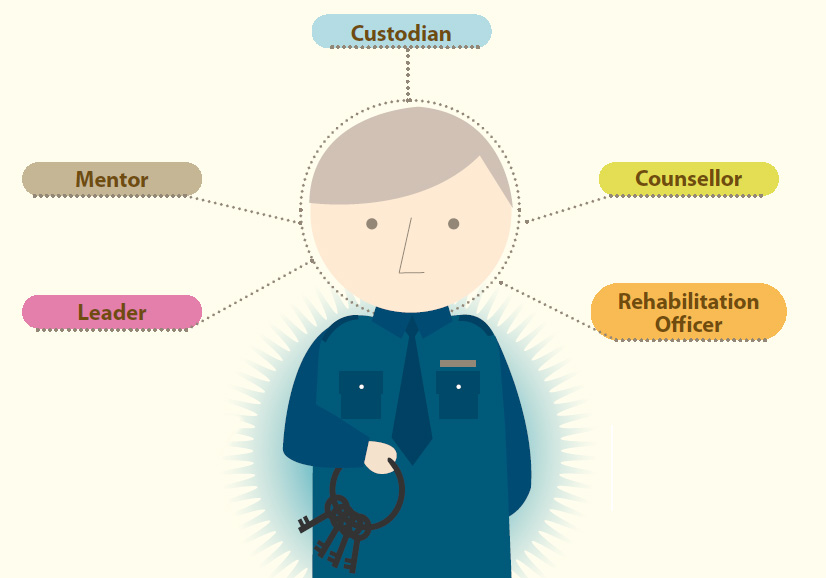Hello Boss are you Listening?

Imagine you are a prison officer dealing with tough inmates for decades. You identify them by numbers, and you learnt from Prison 101 never to trust, much less befriend, them.
Then things change – not overnight, of course. The organisation now wants you to be more than a custodian, but also a rehabilitation officer, counsellor, mentor and leader for the inmates and your peers.
You feel uncertain: Will I be able to cope with so many changes? Now we have to call them by name? Will I lose my moral authority? Will we lose control?
This was the anxiety that Jimmy Lee saw in some colleagues when the Singapore Prison Service began its transformation in 1999, launching its “Captains of Lives” concept and tagline.
Then 30, Jimmy had only been with the Prisons for four years and was, in his own words, “more open to change” than the old guard. He observed some officers were not so comfortable or willing to change; those who wanted to change did not know how to go about doing so.
Cross the Bridge First

Such behaviour is what William Bridges, author of Managing Transitions, calls the “foot dragging” that managers face when they introduce change.
Bridges points out a subtle but important difference between change and transition: Change is situational, such as getting new roles or new structure, but transition is the psychological process that employees undergo to relinquish old mindsets and embrace new ones.
This mental bridge must be crossed before staff can adapt to a new organisational culture and adopt new ways of thinking. Being aware of this transition helps one cope better.
According to Bridges, staff typically experience three “zones” or phases of transition: “Ending”, “Neutral” and “New Beginning”.
Most staff find themselves in the Ending Zone, where it is difficult to let go of the past, so they experience denial, shock, anger, even frustration and stress.
They then progress slowly to the Neutral Zone, when they have accepted that the old reality is gone but are reluctant to accept a new one. There is ambivalence and scepticism, before acceptance sets in.
They enter the New Beginning Zone when they are ready to accept a new reality, and there is a sense of importance, hope and enthusiasm.
Being Roped In
Jimmy, now Senior Assistant Director of the Public Affairs Branch, experienced little of the Ending Zone. He progressed quickly through the Neutral, into the New Beginning Zone. He thinks it was because he – then a trainer at the Prison Staff Training School – was roped in to give secretariat support for those rolling out change.
Having more access to information led to a sense of ownership, he adds: “I felt in the loop [and was part of the] whole change process.”
Jimmy saw that the leaders gave room for officers to suggest ideas, experiment and speak up. Resources were given to make those ideas real, and small successes celebrated.
Have a Clear Purpose
The purpose was also explained clearly: The Prisons had to transform to give inmates an all-rounded support system so they will have a second chance in life.
In fact, the visioning process helped Jimmy realise that he really wanted to be a Captain of Lives. “I’m still with Prisons now (after 15 years) because my calling was discovered during that time,” he says. “The purpose [of my work] became clear… I saw the possibility of changing lives, one at a time.”
Be like Elephants

Communication helped us to cope with change, says Jimmy, who saw how the top management did not just talk about their plans, they listened too.
When the management heard that a group of older officers lacked confidence to take on new roles, they told them a story about elephants: When one is ill, the entire elephant herd stays back to nurse it back to health. This sent out a reassuring message: “Don’t worry, we will wait for you.”
So change happened – albeit slowly and painfully for some – especially after “the momentum kicked in, and they realised that it was not a fad anymore”, says Jimmy.
Jimmy and his colleagues saw that the management had the stamina to sustain a long-term transformation – this helped them let go of the old reality and overcome scepticism. When early adopters made positive inroads, their small wins convinced others that change was truly happening. It spurred others to join in, forming a community and creating an organisational culture that truly embraces change.
Take Control
Jimmy’s personal experience shows that being involved and informed helps one to adopt change. For him,

Instead of being paralysed by fear (which leads to inaction), Jimmy recommends others to also take small, first steps to gain confidence.
So, are you ready for that first step?
Cheat Sheet for Employees
How to cope with change
- Accept that fear and uncertainty is normal
- Be proactive: seek information, get involved
- Take small steps to gain confidence
- Mix with colleagues who are positive about change
Cheat Sheet for Bosses
How to introduce change
- Clarify and communicate purpose
- Show long-term commitment, lead by example
- Inform and involve staff
- Listen to understand why staff fear change
- Acknowledge that change is tough
- Celebrate small wins
This is the first of a three-part series on Managing Change. It was developed in collaboration with the Civil Service College Centre for Organisation Development.
- POSTED ON
Jan 18, 2011
- TEXT BY
Bridgette See
-
Profile
People and Purpose








